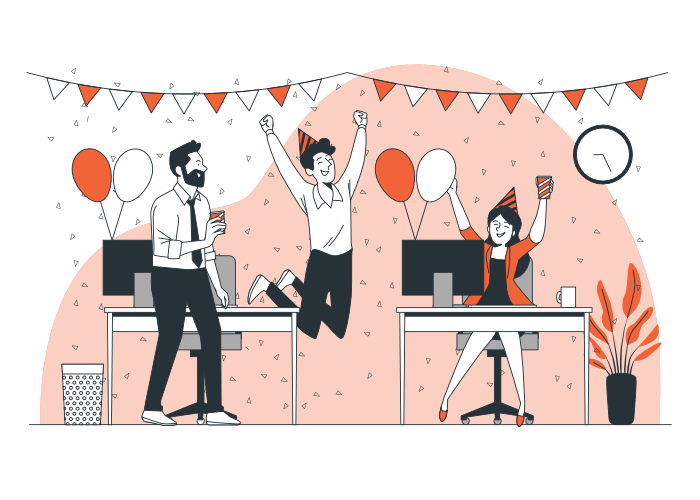It’s so exciting to be at a point where you can move your business into its first office; it means you’ve grown to a point where you need the extra space and you’re making enough profit to make the move worthwhile. Moving into an office is a sure sign of success, but it’s important not to get too carried away; you’ll need to think through a lot of things first so you can be sure you’re picking the right place to work from.
Even if your business is successful, that doesn’t mean you have the money to throw away on a mistake like choosing the wrong business office, and the result could be that you end up somewhere that doesn’t suit you and where your team isn’t happy or productive.
With that in mind, here are some of the things you’ll need to consider when you move into your first business office to ensure that you make the right choice first time.
Things to consider when choosing your first business office
Location
Before you can think of anything else, the location of your office is a must. You’ll need to consider all the different elements that come together to make your business work, and that the location you’re choosing is the right one. The thing to remember is that your office’s location can have a big impact on how visible and accessible you are to clients, customers, and employees, and if you want to be as successful as possible, you need to be on show—this way, you’ll be remembered.
Think about things like:
- Your target market
- Public transport
- Parking
- How professional it looks
- Overall image
Often a more central location can be more appealing to clients and employees, which is why larger cities like London can be ideal. If this sounds like it might work for your business, you can see examples of the types of offices available at theworkplacecompany.co.uk, and you’ll be able to narrow your location down to exactly the right spot.
Budget And Costs
It’s fun to look at different offices, but it’s easy to get carried away and start to make plans that will lead you to spend too much money—in a small business (or even a medium one), this can be a dangerous mistake to make.
This is why it’s best to have a budget in place before you start looking, so you’ll only view places that work for you financially. Plus, don’t just look at the monthly cost of the office space itself; you’ll also need to factor in utilities, insurance, maintenance, security measures, and your deposit, for example. Although it might be that some of these costs will be included in your rent, the rest will be extra, and if you don’t account for them in your budget, you might find you’re leading your business into financial difficulty when you just wanted to take it to the next level.
Size and Layout
The size and layout of your office space is a crucial thing to get right. If it’s too small, people aren’t going to be comfortable as everyone will be crowded together, and you might not be able to fit in all your equipment, meaning you’ll have to get larger premises sooner than you might have wanted. If it’s too big, you’ll be spending money when you don’t need to, and wasting money on energy for heating and lighting, too. Plus, your team might feel as uncomfortable in a larger, empty space as they would in a small, crowded one.
This is why you need to work out the exact amount of space that you need so everyone is happy and you can fit everything in. You’ll also want to make sure there are enough bathrooms, a kitchen area, a break room, and so on—it’s not just about the floorspace, but how it’s used, too.
Amenities
What’s around the office? Where can your workers go on their lunch break to really get some peace and quiet and some rest? Are there any gyms nearby that people could use or cafes for breakfast? In other words, you can choose a fantastic office space that has everything your team might want, but if it’s in the middle of nowhere and there’s nothing for them to do or enjoy around it, they might not be as comfortable as you need them to be for productivity.
That’s why you need to think about what they might need as well as the office itself. A gym or open spaces are great for getting exercise, and a place to relax is good for giving staff the chance to unwind. The better the area you choose, the more there’ll be for people to do, and your team will be happier coming to the office, so it’s definitely worth considering what’s nearby and letting everyone know so they can make the most of the area in their free time.
Scalability
When you’re setting up your first business office, you might not be thinking of the next step —after all, you’re just working out how to get this one right. However, if you can think about what comes next, it could be useful. If you’ve got a plan to grow the business over the next few years, it might make more sense to find an office that you can grow into, meaning you won’t have to move too soon and disrupt your business, workers, and customers in the process.
As mentioned above, a large space that’s not needed can be expensive, so as an alternative, it could be wise to find a flexible lease that allows you to upgrade or downsize as required. Even if you decide to move somewhere else entirely, this flexibility means you can be ready for anything, should you need to be.

